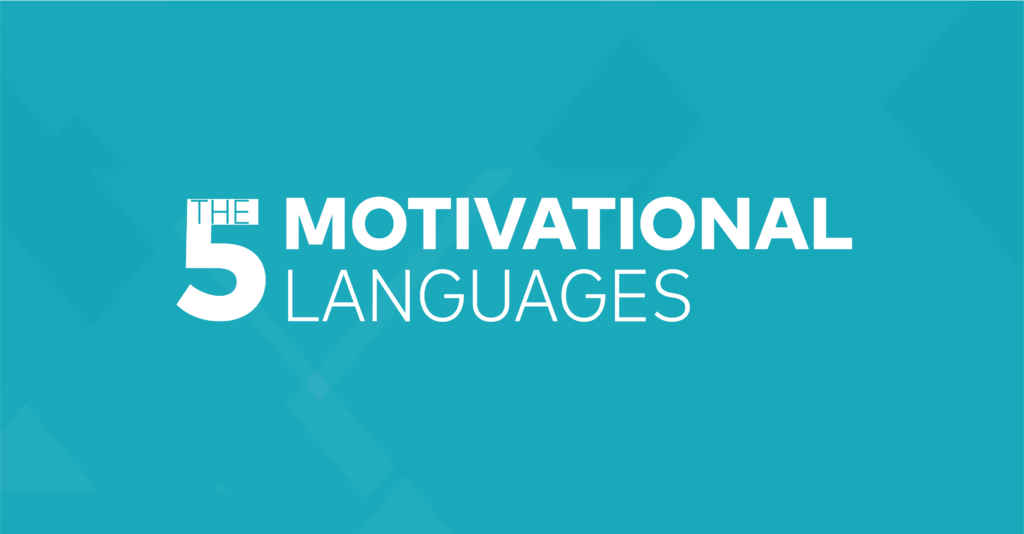What Motivates You to Change?
Ah, February. The month of love. The commercial celebration of our heart’s desires, and by no coincidence, American Heart Month. It’s a new year a great time to check in with your heart, both physically and emotionally.
Speaking of our hearts, most of us are familiar with (or have at least heard about) “The 5 Love Languages.” According to the book by Gary Chapman, our love languages can be broken down into 5 groups: Words of Affirmation, Gifts, Acts of Service, Quality Time, and Physical Touch. The ‘language’ you speak determines how you connect and communicate with others. Understanding your love language, and those of your loved ones, helps identify the root of conflicts and connection and allows us to give and receive love in healthier ways.
At GoPivot, we believe that in the same way that people show and receive love differently, they are motivated differently. Taking a page out of “The 5 Love Languages” (no pun intended), we’ve given some thought to the idea of “The 5 Motivational Languages.” Rather than languages that drive our love lives, what motivates us as individuals? In a society that is incredibly driven by the need to succeed – to earn a raise or promotion, get a fresh start, to get fit, to give back, to run for office, the list goes on and on – understanding what incentivizes us is key.
There isn’t a one-size-fits-all when it comes to incentives. We know that people are motivated differently based on age, lifestyle factors, and environment. We also know that people can act differently in a given situation based entirely on the types of incentives that are available to them at that time. Employers ask themselves whether extra compensation or more flexible hours will encourage employees to perform better. Health coaches wonder what the most effective way is to encourage people to stick to an exercise routine. At the community level, how do we incentivize people to be more environmentally conscious?[/vc_column_text][/vc_column][/vc_row][vc_row][vc_column width=”1/2″][vc_column_text]We’ve come up with ‘5 Motivational Languages’ that we’ve seen drive decision-making both in our work and everyday lives.
Peer or Leadership Recognition:
Isn’t it nice to be recognized for the effort we put in? Positive reinforcement can mean the difference between sticking to goals we set, meeting deadlines, keeping commitments, and failing to accomplish any of them. Many of us find it much more enticing to go the extra mile and to put in the extra effort when we’re being acknowledged for our dedication and our hard-earned achievements. Validation from our peers can be a powerful tool.
Competition and Gamification:
Whether it comes down to the motivation to win, improving one’s performance, or being instrumental in the outcome, competition can provide an opportunity for all of us. Sometimes, a healthy dose of it is all it takes to compel us to participate. Studies show that the application of typical elements of game playing (point scoring, competition with others, rules of play) to our activities is incredibly effective in getting us engaged and getting results.
Rewards:
Whether we’re talking tangible (think money or prizes) or abstract rewards (like the gratifying feeling we get after we’ve completed a workout) rewards are a key component in not only motivating people but keeping them motivated long term. Short-term rewards give us instant gratification which has been proven to be essential in achieving our goals. Check out our blog post on SMART Goals for a comprehensive break down on how to set effective and rewarding goals.
Quality of Life:
Our own happiness and well-being is something many of us aim to prioritize and is a huge motivator when we make decisions. Recognizing and changing negative personal behaviors, such as quitting smoking, or eliminating external factors, like quitting a stressful job, can help us feel healthier, more satisfied, and have more energy. This is what we call Intrinsic Motivation – in other words, the incentive to engage in behaviors because they are naturally satisfying to us. Rather than engaging in activities for the reward, we seek out activities that we find challenging, interesting, and internally rewarding because it makes us feel good!
Security, Control, Power:
Many of us are motivated by the ability to dictate what we do, when we do it, and how we do it. Whether it’s autonomy, authenticity, mastery, or influence you seek, many of us are incentivized based on what we value; in this case, the freedom to control our own time and make our own decisions. The ability to set a clear vision and pathway to obtain our goals in our work and everyday lives is important to many of us. Opportunities for personal development i.e. to hone our skills, gain knowledge, and cultivate reliable resources, are incredibly incentivizing.
Just like the 5 Love Languages, often what incentivizes us can be a combination of a few motivators. Some of us tend to speak a combination of these motivational languages, or perhaps one more firmly than the other. Some of us transition between them depending on where we are in our lives. When we think about incentives at GoPivot, we put a lot of consideration into what truly motivates people, and how we can engage every person, no matter which of these languages you favor. We know that incentives are not a one-size-fits-all, in fact, we look at engagement like a relationship, if we’re not speaking your language, we’ll learn it.




